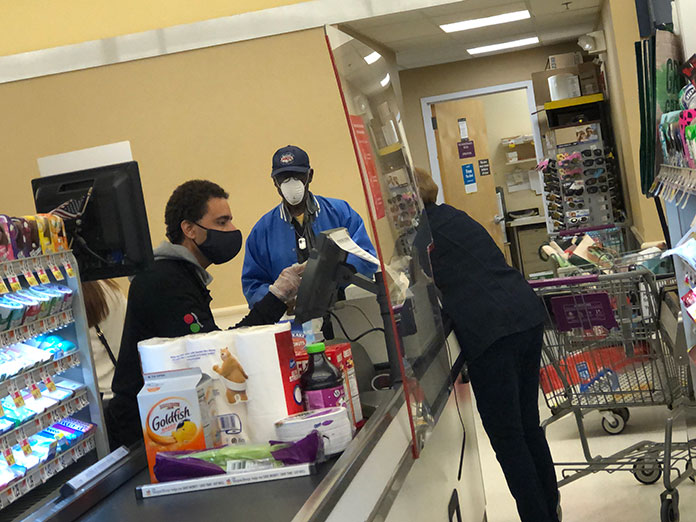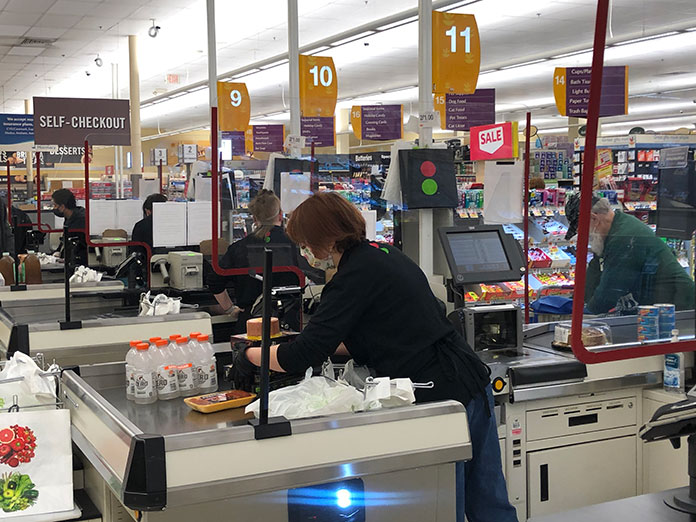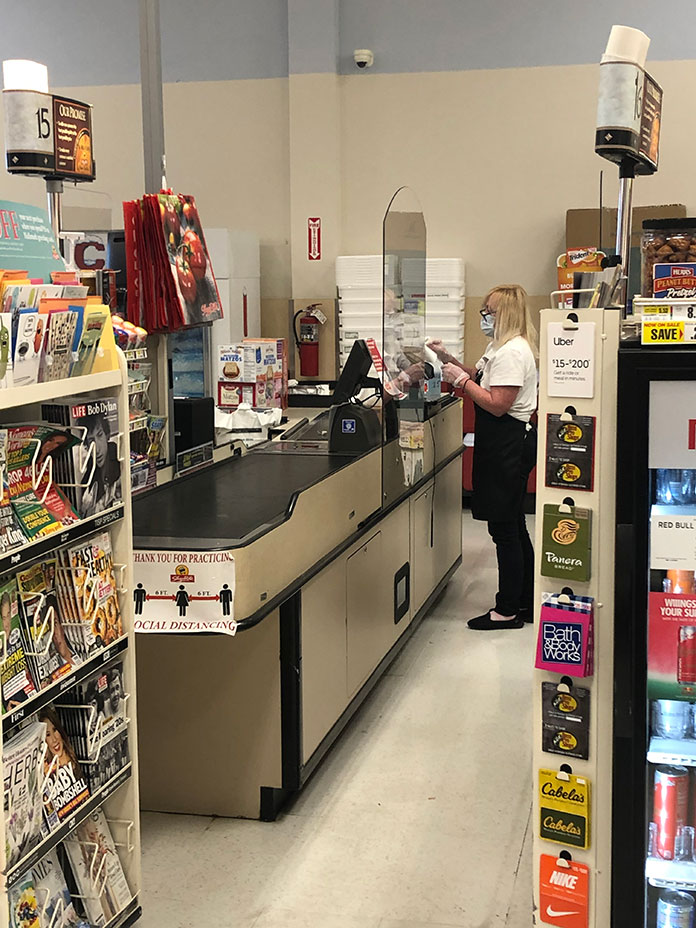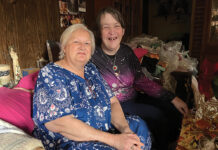
BRICK – Starting around mid-March, before supermarkets implemented safety precautions to protect employees and customers from the coronavirus, the stores were “insane,” said Debbie Smith,* who works as a cashier in one of the big grocery stores in town.
“It was tough and scary, and even before the pandemic, a lot of customers don’t treat us like we’re human beings,” she said. “They can be very mean.”
As the coronavirus spread and people became concerned, Smith said customers became aggressive.
“It was crazy, crazy busy. Customers were almost getting into fist fights, they were cutting the line, people acted like animals, it was madness,” she said.
“We were trying to get people out of the store as fast as we could,” Smith said. She added that she had always had concerns about working with and handling money because of all the germs, and for this reason, supermarkets usually provide hand sanitizer pumps at all the registers.

At the beginning of the public health crisis, the management at her supermarket told the employees if they didn’t feel safe they could use 14 vacation days, but they would not be eligible for unemployment.
She added a lot of employees took the deal, including Smith, who took the time off because she has at-risk family members at home.
“I walked into the store one day, and I couldn’t believe how long the check-out lines were. There was no separating yet, and I couldn’t do it, so I took the two weeks,” she said.
Smith is the only one in her family who is working right now since other family members are “non-essential” workers.
When she returned to work at the beginning of April, new safety measures had been put into place. The store provided face masks and gloves to their employees, and the cashiers and customers were separated by newly-installed plexiglass barriers.
Because of new “social-distancing” rules, customers have to stay six feet apart from each other at the registers, and only 50 percent of the store’s capacity for people are allowed in at any given time. Now customers are also required to wear a facial covering in the store.
She said when a customer coughs while they’re on line, everyone gives them “that crazy look,” even though not everyone who coughs has the virus.
“My managers are doing the best they can. I give them a lot of credit,” Smith said.
Due to the new rules, business has slowed down, but now a lot of customers say they come to the supermarket because they’re bored, Smith said.

“You shouldn’t come to the store because you’re bored! We’re all bored! Come and get what you need and go home,” she said. “If you stay home, this thing will go away,” Smith said.
Smith said she earns $2 more an hour in what she calls hazardous pay. In the beginning of the pandemic, she said the employees were “totally overworked,” but now shifts are back to eight hours because management is trying to avoid paying overtime.
“Even now, when I have to go to the grocery store, I thank my cashier,” she said. “We are getting more recognition now, and I appreciate that. We just have to stick together,” Smith said.
*The name Debbie Smith is being used to hide the subject’s true identity.







